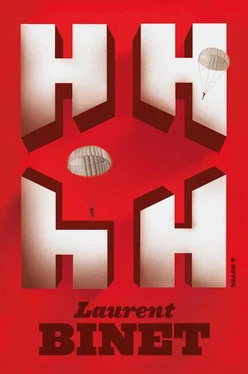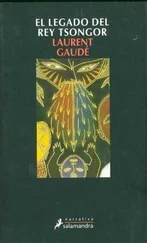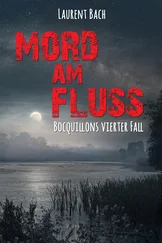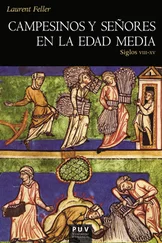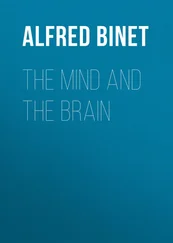Laurent Binet - HHhH
Здесь есть возможность читать онлайн «Laurent Binet - HHhH» весь текст электронной книги совершенно бесплатно (целиком полную версию без сокращений). В некоторых случаях можно слушать аудио, скачать через торрент в формате fb2 и присутствует краткое содержание. Город: New York, Год выпуска: 2012, ISBN: 2012, Издательство: Farrar, Straus and Giroux, Жанр: Историческая проза, на английском языке. Описание произведения, (предисловие) а так же отзывы посетителей доступны на портале библиотеки ЛибКат.
- Название:HHhH
- Автор:
- Издательство:Farrar, Straus and Giroux
- Жанр:
- Год:2012
- Город:New York
- ISBN:978-0-374-16991-6
- Рейтинг книги:3 / 5. Голосов: 1
-
Избранное:Добавить в избранное
- Отзывы:
-
Ваша оценка:
- 60
- 1
- 2
- 3
- 4
- 5
HHhH: краткое содержание, описание и аннотация
Предлагаем к чтению аннотацию, описание, краткое содержание или предисловие (зависит от того, что написал сам автор книги «HHhH»). Если вы не нашли необходимую информацию о книге — напишите в комментариях, мы постараемся отыскать её.
HHhH — читать онлайн бесплатно полную книгу (весь текст) целиком
Ниже представлен текст книги, разбитый по страницам. Система сохранения места последней прочитанной страницы, позволяет с удобством читать онлайн бесплатно книгу «HHhH», без необходимости каждый раз заново искать на чём Вы остановились. Поставьте закладку, и сможете в любой момент перейти на страницу, на которой закончили чтение.
Интервал:
Закладка:
152
Don’t believe everything you’re told—especially when the Nazis are telling you. They tend to be wrong in one of two ways. Either, like big fat Göring, they are guilty of wishful thinking, or—like Goebbels Trismegistus (called “the human loudspeaker” by Joseph Roth)—they lie shamelessly for propagandist ends. And quite often they do both at the same time.
Heydrich is not immune to this Nazi trait. When he claims to have decapitated and neutralized the Czech Resistance, he probably believes what he’s saying—and it’s not completely false. Even so, it’s a somewhat hollow boast. On the night of December 28, 1941, when Gabčík injures himself in a clumsy collision with his native soil, the state of the Resistance in the Protectorate is worrying but not entirely hopeless. They still have a few cards up their sleeve.
For a start, Tri kralové (“the Three Kings”—the unified organization of Czech Resistance movements) is still operational, despite taking some heavy blows. The three kings are the heads of this organization: three former Czechoslovak army officers. On Heydrich’s arrival in January 1942, two of them are put out of action: one is shot, the other tortured in a Gestapo jail. But that leaves one—Václav Morávek (with a k at the end, thankfully, so he can’t be confused with Colonel Moravec, nor with the Moravec family, nor with Emanuel Moravec, the minister of education). He wears gloves all year round because one of his fingers was severed sliding down a lightning conductor to avoid a Gestapo patrol. The last of the three kings is intensely active in coordinating what remains of his network, and continues to risk his life. He is waiting for what his organization asked for months before—the arrival of the parachutists from London.
Morávek is also the conduit for the incredible information sent to London by one of the greatest spies of the Second World War—a high-level German Abwehr officer called Paul Thümmel (code name A54; alias René). He alone was able to warn Colonel Moravec of the Nazi invasions of Czechoslovakia, of Poland, of France (in May 1940), of Great Britain (planned for June 1940), and of the USSR (in June 1941). Unfortunately, the countries in question were not always able or willing to heed such warnings. But the quality of the information greatly impressed London, and it was only through Morávek that it could arrive—because A54 was based in Prague and, prudently, wanted to deal with only one Allied agent. So he is one of Beneš’s trump cards, and the president spends whatever it takes to keep him onside.
At the other end of the chain are the ordinary Resistance fighters—little people like you or me, except that they are willing to risk death by hiding comrades, storing materials, and delivering messages. They form a significant Czech shadow army, which can still be counted upon.
Gabčík and Kubiš may only be two men, charged with fulfilling a daunting mission. But they are not alone.
153
In a Prague apartment in the Smichov district, two men wait. They jump when the bell rings. One of them gets up and opens the door. A man walks in, quite tall for the time. It’s Kubiš.
“I am Ota,” he says.
“And I’m Jindra,” one of the men replies.
Jindra is the name of one of the most active internal Resistance groups, organized by a sport and physical culture association, the Sokols.
They pour tea for the newcomer. A heavy silence is finally broken by the man who introduced himself in the organization’s name:
“I would like you to notice that the house is guarded, and that we each have something in our pocket.”
Kubiš smiles and takes a pistol from his jacket. (In fact, he’s got another one up his sleeve.)
“I like toys too,” he says.
“Where have you come from?”
“I can’t tell you.”
“Why?”
“Our mission is secret.”
“But you’ve already told lots of people that you’ve come from England.”
“So what?”
A silence, presumably.
“Don’t be surprised that we don’t trust you. There are many double agents in this country.”
Kubiš says nothing. He doesn’t know these people. He may need their help, but he’s clearly decided that he’s not answerable to them.
“Do you know any Czech officers in England?”
Kubiš agrees to name a few. He responds more or less graciously to some other potentially embarrassing questions. The second man intervenes. He shows Kubiš a photo of his son-in-law, who’s gone to London. Kubiš recognizes him, or doesn’t recognize him, but he seems at ease because he is. The man who called himself Jindra speaks again:
“Are you from Bohemia?”
“No, from Moravia.”
“What a coincidence—me too!”
Another silence. Kubiš knows he’s being tested.
“Could you tell me whereabouts?”
“Near Třebíč,” Kubiš replies grumpily.
“I know that area. What would you say is unusual in the train station at Vladislav?”
“There’s a beautiful clump of rosebushes. I guess the station boss likes flowers.”
The two men start to relax. Kubiš adds:
“Don’t be offended by my silence. All I can tell you is the mission’s code name: Anthropoid.”
What’s left of the Czech Resistance tends to be guilty of wishful thinking. For once, it’s not wrong.
“You’ve come to kill Heydrich?” asks Jindra.
Kubiš is stunned:
“How do you know that?”
The ice is broken. The three men drink more tea. Now everyone who’s anyone in the Prague Resistance will be at the service of the two parachutists from London.
154
For fifteen years, I hated Flaubert. I held him responsible for a certain kind of French literature—devoid of grandeur and imagination, content to portray mediocrity, wallowing in the most boring sort of realism, reveling in the very petit bourgeois universe it claims to denounce. And then I read Salammbô , which immediately became one of my ten favorite books.
When I had the idea of going back to the Middle Ages to sketch the origins of Czech-German hostilities, I wanted to find a few examples of historical novels whose action takes place before the modern era. I thought again of Flaubert.
While composing Salammbô , Flaubert worries in his letters: “It’s History, I know that. But if a novel is as boring as a scientific book…” He also felt that he was writing “in a deplorable academic style,” and then “what bothers [him] is the psychological aspect of [his] story,” all the more so as he must “make people think in a language in which they never thought! ” Regarding research: “When I research a word or an idea, I let my mind wander into infinite daydreams…” This problem goes hand in hand with that of veracity: “As for my archaeology, it will be ‘probable,’ that’s all. As long as no one can prove that what I’ve written is nonsense, that’s all I ask.” There I’m at a disadvantage: it’s easier to be proved wrong about the registration number of a Mercedes in the 1940s than the harnessing of an elephant in the third century before Christ.
Even so, I am comforted by the idea that Flaubert, long before me, writing his masterpiece, felt this same anguish and asked himself these same questions. I am also reassured when he writes: “Our worth should be measured by our aspirations more than our works.” That means I’m allowed to make a mess of my book. Everything should come together more quickly now.
155
Unbelievable—I’ve just found another novel about the assassination! It’s called Like a Man , and it’s by a certain David Chacko. The title is supposed to be a rough translation of the Greek word anthropoid . The book is extremely well researched. I get the impression the author has utilized everything currently known about Heydrich and the attack—even some fairly obscure (and sometimes questionable) theories such as the hypothesis that the bomb contained poison. I was greatly impressed by the mass of details he’s gathered and I’m inclined to think they’re authentic, as I haven’t found a single one that I know to be false. This has forced me to qualify my opinion of Seven Men at Daybreak , the Alan Burgess novel I had previously thought rather fanciful. I had been particularly skeptical about the swastika branded on Kubiš’s ass. I also condescendingly picked up on a glaring error regarding the color of Heydrich’s Mercedes, which the author claimed was green. But David Chacko’s novel agrees with Burgess’s on both points. And since I haven’t otherwise been able to spot a single mistake in his book—even with very specific details that I had imagined, in a fit of slightly delirious pride, were perhaps known only to me—I am bound to trust what he writes. Suddenly I start questioning myself. But this Mercedes—it was black, I’m sure. Not only in the army museum at Prague, where the car was exhibited, but also in the numerous photos that I checked. Obviously, in a black-and-white photo, it would be easy to confuse black with dark green. And admittedly there is some controversy over the exhibited Mercedes: the museum claims it’s the original, but certain people dispute this, saying that it’s been re-created (with the blown tire and the smashed rear right door) as an exact replica. But even if it is a replica, surely they would have made sure they got the color right! Anyway, I’m probably attaching too much importance to what is, at the end of the day, just a background detail. I know that. In fact it’s a classic symptom of neurosis. I must be anal-retentive. Let’s move on…
Читать дальшеИнтервал:
Закладка:
Похожие книги на «HHhH»
Представляем Вашему вниманию похожие книги на «HHhH» списком для выбора. Мы отобрали схожую по названию и смыслу литературу в надежде предоставить читателям больше вариантов отыскать новые, интересные, ещё непрочитанные произведения.
Обсуждение, отзывы о книге «HHhH» и просто собственные мнения читателей. Оставьте ваши комментарии, напишите, что Вы думаете о произведении, его смысле или главных героях. Укажите что конкретно понравилось, а что нет, и почему Вы так считаете.
